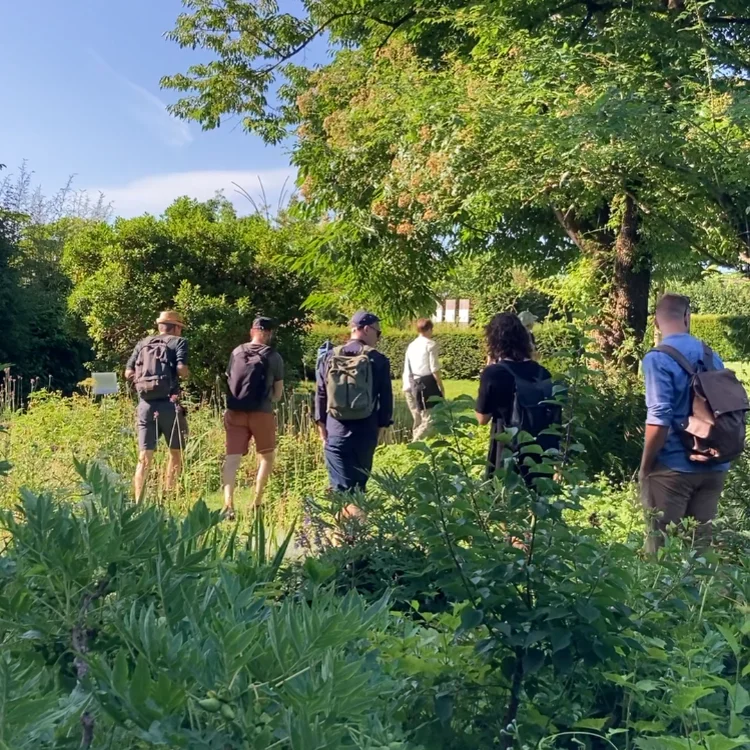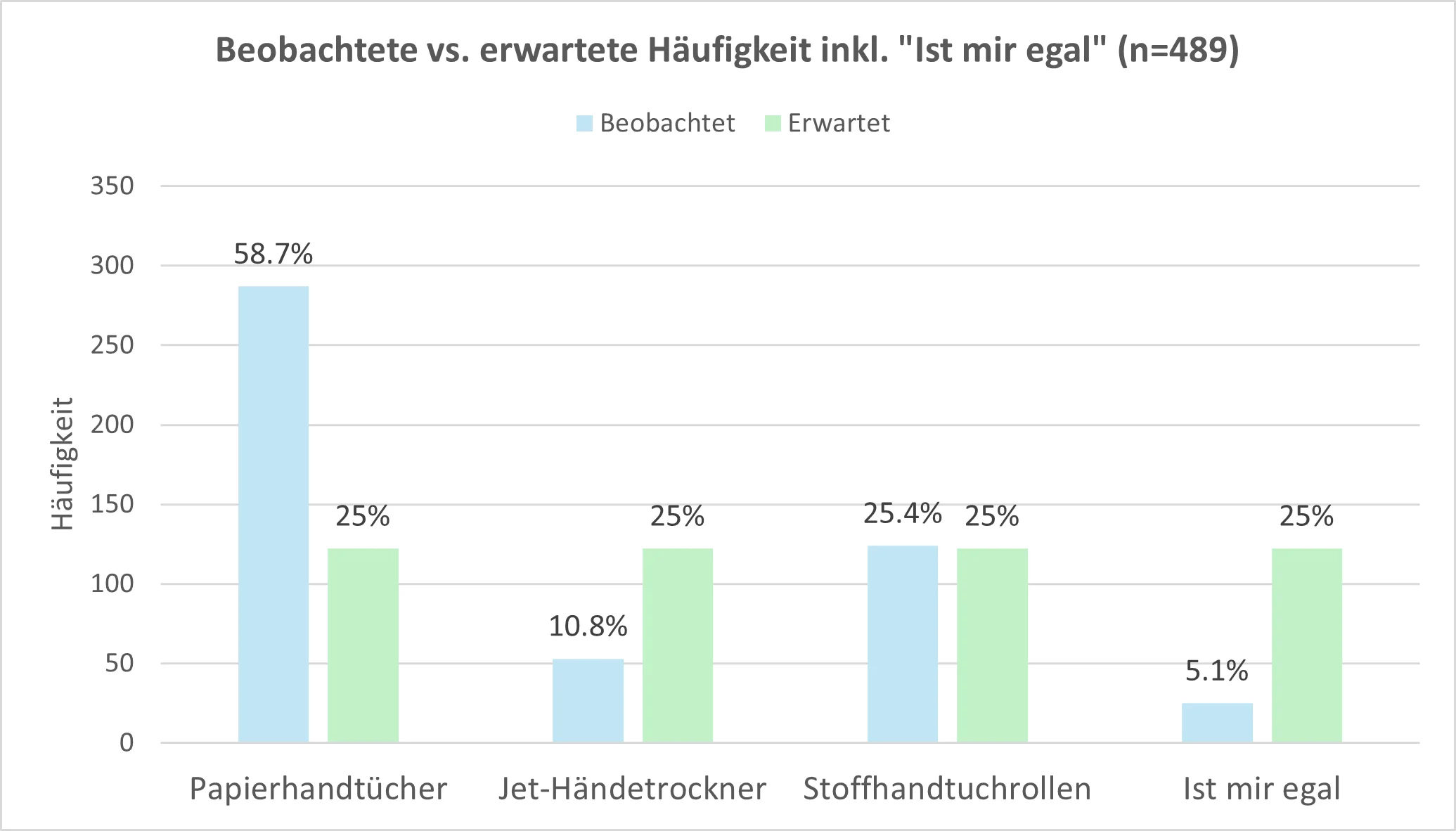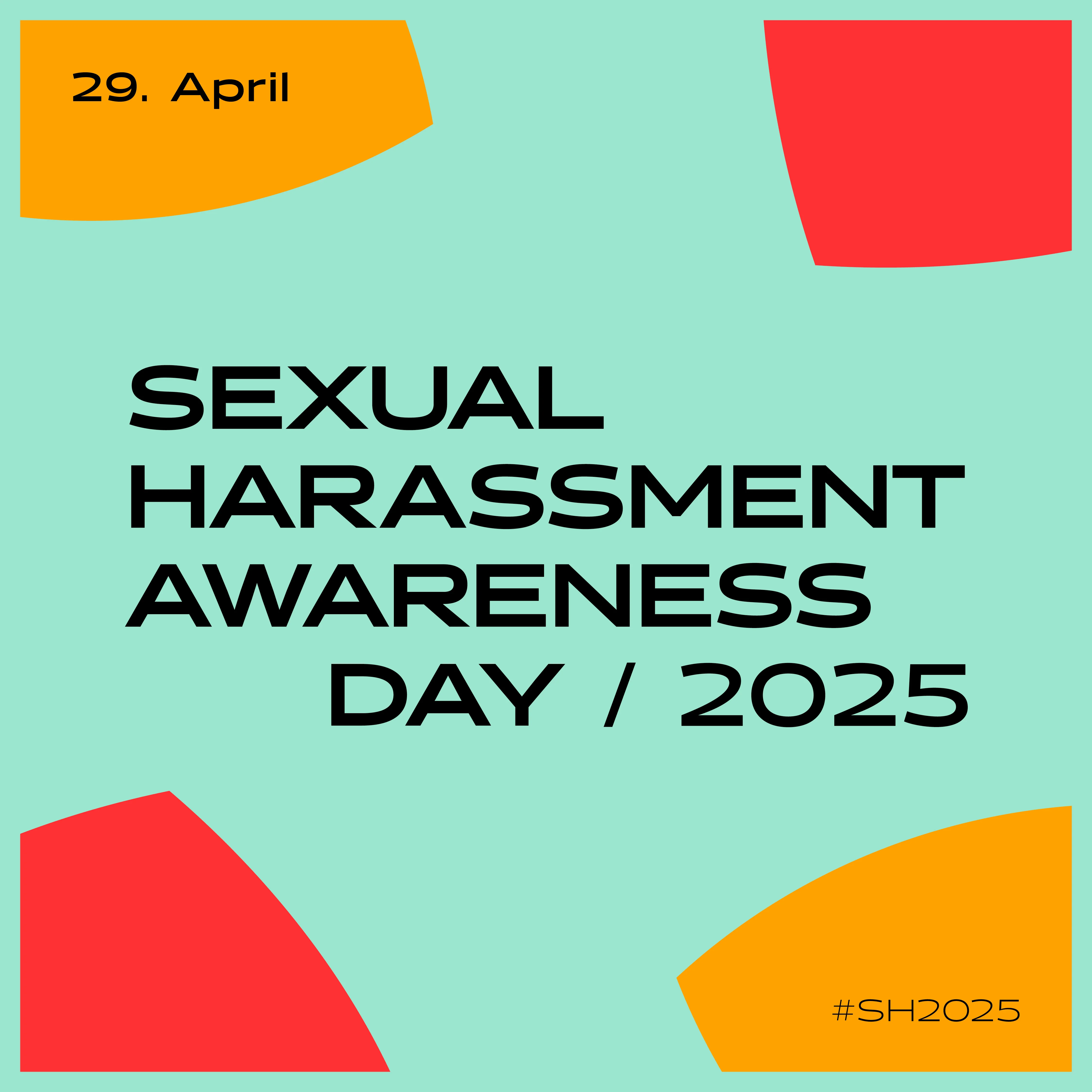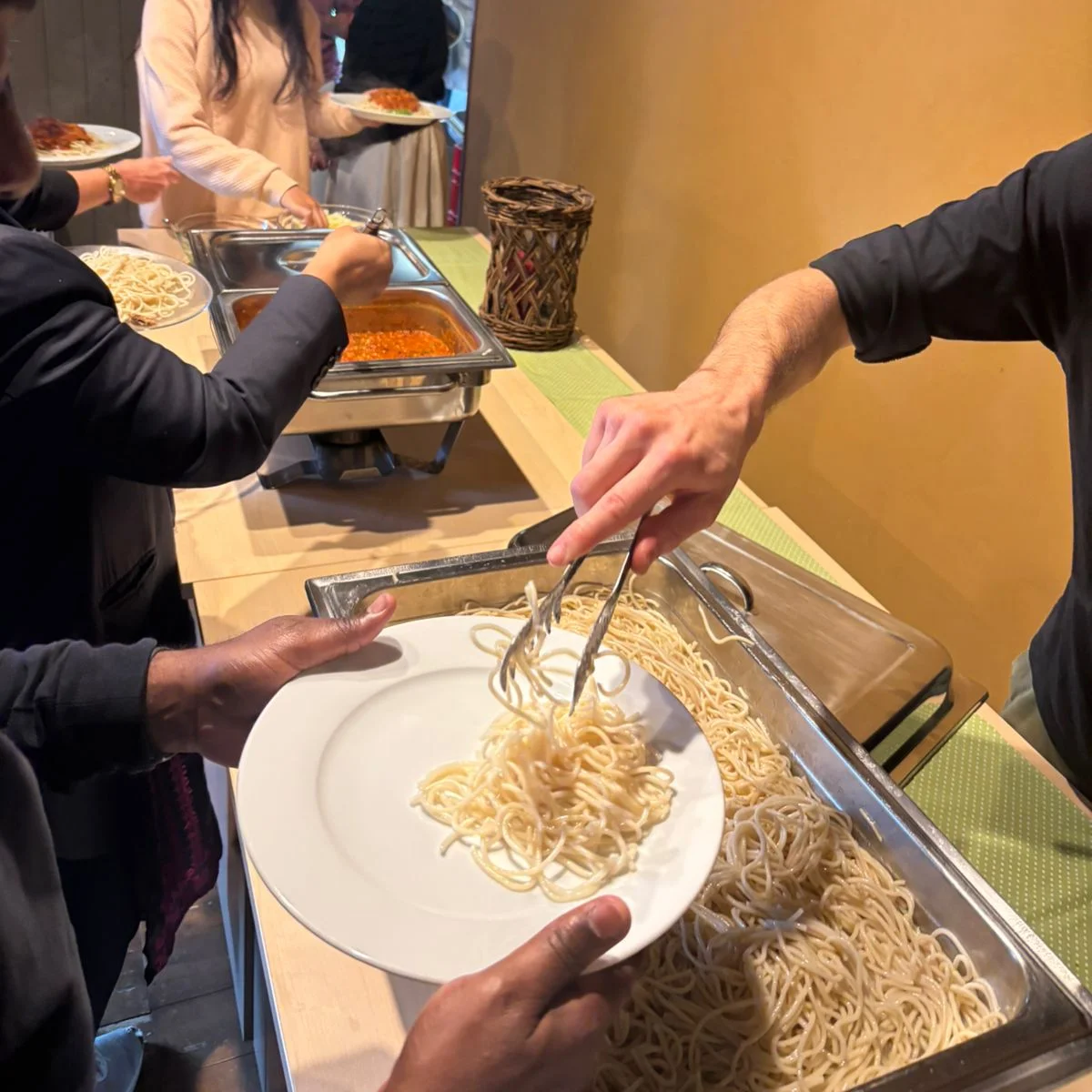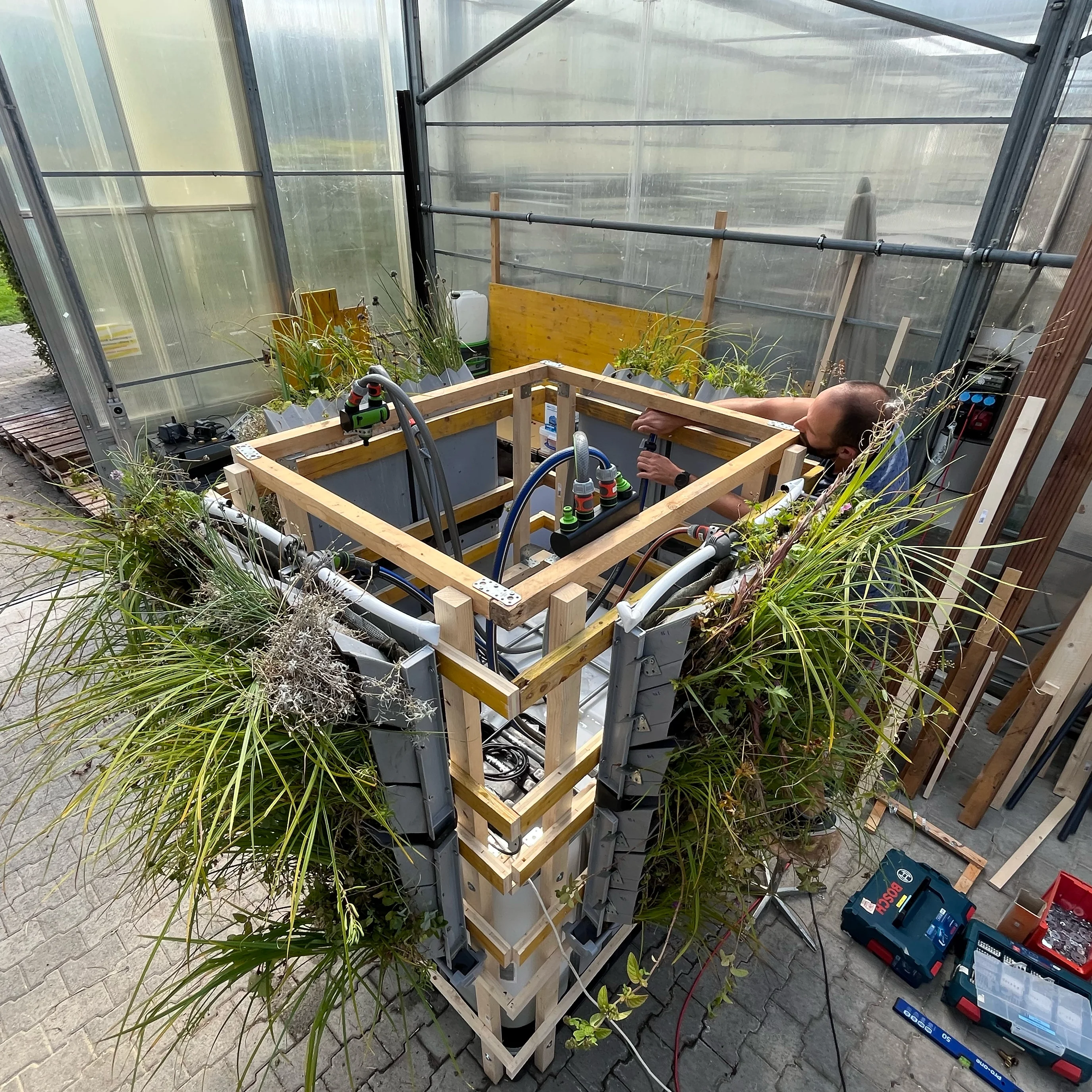Previously funded Instant Impact Fund projects
ZHAW Walks: Explore and Exchange Interdisciplinary Practices
In June 2025, ZHAW WALKS brought together employees from various ZHAW institutes for a walk across the Wädenswil, Winterthur and Zurich campuses. The aim was to promote interdisciplinary exchange and explore new forms of collaboration.
During the campus tours, numerous synergies became apparent, particularly at the interface between the environment, society and design. Despite their different professional backgrounds, the participants were united by a common goal: the development of an ecologically and socially sustainable city.
The open structure of the format encouraged informal discussions, mutual understanding and new project ideas. The positive feedback confirmed the value of this low-threshold exchange.
Project team: Maxime Zaugg, Jeannine Hess, Stefan Stevanovic, Anke Kaschlik, Nathalie Baumann, Anke Domschky
Survey on hand drying systems: Focus on user needs at ZHAW
As part of a bachelor's thesis at the Institute of Facility Management, a survey was conducted on the preferences and use of hand drying systems in the sanitary facilities of the ZHAW. According to findings from previous studies, jet hand dryers are considered a particularly sustainable option. However, they may conflict with user acceptance. The aim was therefore to gain insights into user acceptance and satisfaction and to create a sound basis for future decisions regarding equipment.
The results show a clear preference for paper towels. At the same time, it became clear that jet hand dryers could be better accepted through targeted communication on hygiene and the ecological balance. Cloth towel rolls, on the other hand, show moderate acceptance among users at work. A key learning point is that when selecting hand drying systems, the interplay between hygiene, user acceptance, comfort, and practical feasibility is always crucial, and that users have a strong opinion on this issue. These findings provide a valuable basis for sustainable and user-friendly solutions in office and educational buildings.
Project team: Irina Pericin Häfliger, Claudia Müller, Merisa Zahirovic
ML 4 Biocatalysis Workshop: Harnessing the potential of machine learning for the sustainable development of green catalysts
On 18 March 2025, the international workshop ‘ML 4 Biocatalysis – Harnessing the Potential of Machine Learning for the Sustainable Development of Green Catalysts’ brought together over 100 participants from more than 10 countries. The aim was to tap into the potential of machine learning (ML) to accelerate enzyme development and conserve resources - a crucial step towards more sustainable industrial biocatalysis.
More than ten specialist presentations, a panel discussion and over 30 scientific posters facilitated an intensive exchange between ML experts and biocatalysis researchers. The event promoted new interdisciplinary collaborations and highlighted concrete approaches for how ML can make the chemical- and energy-intensive process of enzyme optimisation more efficient.
A key learning: sustainable solutions can only be developed in a scalable manner through close collaboration between computer science, chemistry and industry. The results will be summarised in a white paper and submitted for publication.
Project team: Peter Stockinger, Mojmir Mutny (ETH AI Center), Tobias Vornholt (Uni Basel)
Sexual Harassment Awareness Day 2025
The third national day of action by universities against sexual harassment – Sexual Harassment Awareness Day – took place on 29 April 2025. The ZHAW once again took part with various activities and communication measures. In addition to webinars for ZHAW members, the focus was on providing information and raising awareness.
The aim was to highlight the issue of sexual harassment. Specifically, it was explained that sexual harassment also occurs at universities, what is meant by sexual harassment, and how victims or witnesses can act and what support services the ZHAW offers. The measures were low-threshold, had a preventive and awareness-raising focus, and took place over several weeks.
Project team: Regula Kolar
Sustainable Food Cultures - impacts for the future
How does globalisation influence our food culture – and how can we uphold sustainable traditions? From 7 to 11 July 2025, 23 international participants gathered at ZHAW Wädenswil to discuss precisely these questions. The focus was on changes in nutrition across generations, cultural differences and common challenges.
During their visit to the Schluchtalhof farm, participants learned how regenerative agriculture works in practice – from faba beans and soil care to direct marketing. Their insights sparked a lively exchange that revealed many similarities between Switzerland and the participants' countries of origin.
The summer school provided impetus for sustainable transformation and actively contributed to the implementation of the UN Sustainable Development Goals. This was made possible thanks to funding from the SIP Instant Impact Fund and cooperation with the Technical University of Berlin.
Project team: Christine Brombach, Annette Bongartz, Karin Chatelain, Silke Bartsch (TU-Berlin)
Grüental Campus – a real-world laboratory for water reuse: first green wall pilot project with integrated greywater treatment
The project implemented an innovative communication and demonstration concept for GreenWall technology at Campus Grüental. The GreenWalls developed by the Ecotechnology Research Group combine urban greening with a greywater treatment system, thereby contributing to resource conservation and improving the microclimate – an approach that is highly relevant in view of increasing global water scarcity.
The aim of the project was to raise awareness of this technology among campus visitors through clear messages and to make the research results of ecotechnology visible in a practical way. Information signs, an animated video with a 3D programme explaining how the GreenWall works, and a concept on optimising existing systems were implemented.
Project team: Robin Giacomelli, Maximilian Grau
